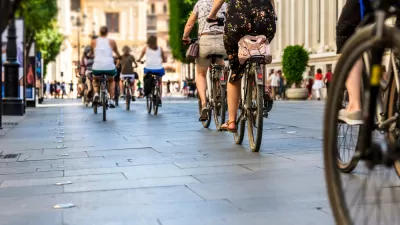Energy shortages in coal, natural gas, and diesel fuel are constraining India's growth. At the heart of the shortages are government subsidies that keep prices low, state-run monopolies that are unable to increase production, and costly imports.
Indian correspondents Amol Sharma and Megh Bahree describe how the shortages of all three fossil fuels hamper economic growth in the sub-continent.
"A shortage of coal, which accounts for more than half of the nation's energy supply, is crippling the power sector, forcing companies to delay the opening of multibillion-dollar projects. India in April announced an 80% jump in coal imports ...but many plants still run below capacity for lack of coal."
Electricity shortages have resulted in clinics being forced to dump vaccines due to lack of continual refrigeration. As many as 400 million rural residents may lack access to electricity.
Coal shortages are largely a result of the inability of Coal India, India's state-run monopoly, to produce enough due to many factors, including old equipment and security threats.
The video shows an operator at a new plant explaining that he has only five days worth of coal stock - when a month's worth should be available.
"(Prime Minister Manmohan Singh) is beginning to realize that there's a very bleak outlook in terms of energy security, and that this is going to create the single largest constraint on the economy", said one energy consultant.
Deregulation of energy will be challenging.
"State-run energy companies are racking up billions of dollars in losses by selling auto fuel, cooking gas and electricity at artificially low prices to protect consumers from global cost increases." Consequently, residents expect low prices on these fuels.
"India has a very distorted system of subsidies," Jaipal Reddy, minister for petroleum and natural gas, said. "But how, in a vibrant democracy like in India, do you change the system suddenly?"
Note: Link to article without WSJ subscription may be time-limited.
FULL STORY: Grinding Energy Shortage Takes Toll on India's Growth

Planetizen Federal Action Tracker
A weekly monitor of how Trump’s orders and actions are impacting planners and planning in America.

Chicago’s Ghost Rails
Just beneath the surface of the modern city lie the remnants of its expansive early 20th-century streetcar system.

San Antonio and Austin are Fusing Into one Massive Megaregion
The region spanning the two central Texas cities is growing fast, posing challenges for local infrastructure and water supplies.

Since Zion's Shuttles Went Electric “The Smog is Gone”
Visitors to Zion National Park can enjoy the canyon via the nation’s first fully electric park shuttle system.

Trump Distributing DOT Safety Funds at 1/10 Rate of Biden
Funds for Safe Streets and other transportation safety and equity programs are being held up by administrative reviews and conflicts with the Trump administration’s priorities.

German Cities Subsidize Taxis for Women Amid Wave of Violence
Free or low-cost taxi rides can help women navigate cities more safely, but critics say the programs don't address the root causes of violence against women.
Urban Design for Planners 1: Software Tools
This six-course series explores essential urban design concepts using open source software and equips planners with the tools they need to participate fully in the urban design process.
Planning for Universal Design
Learn the tools for implementing Universal Design in planning regulations.
planning NEXT
Appalachian Highlands Housing Partners
Mpact (founded as Rail~Volution)
City of Camden Redevelopment Agency
City of Astoria
City of Portland
City of Laramie



























